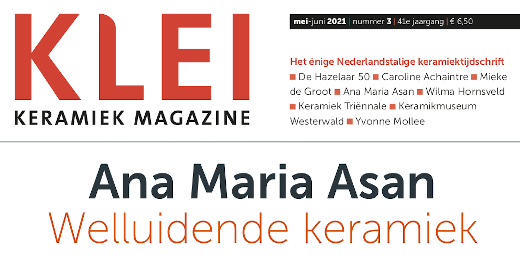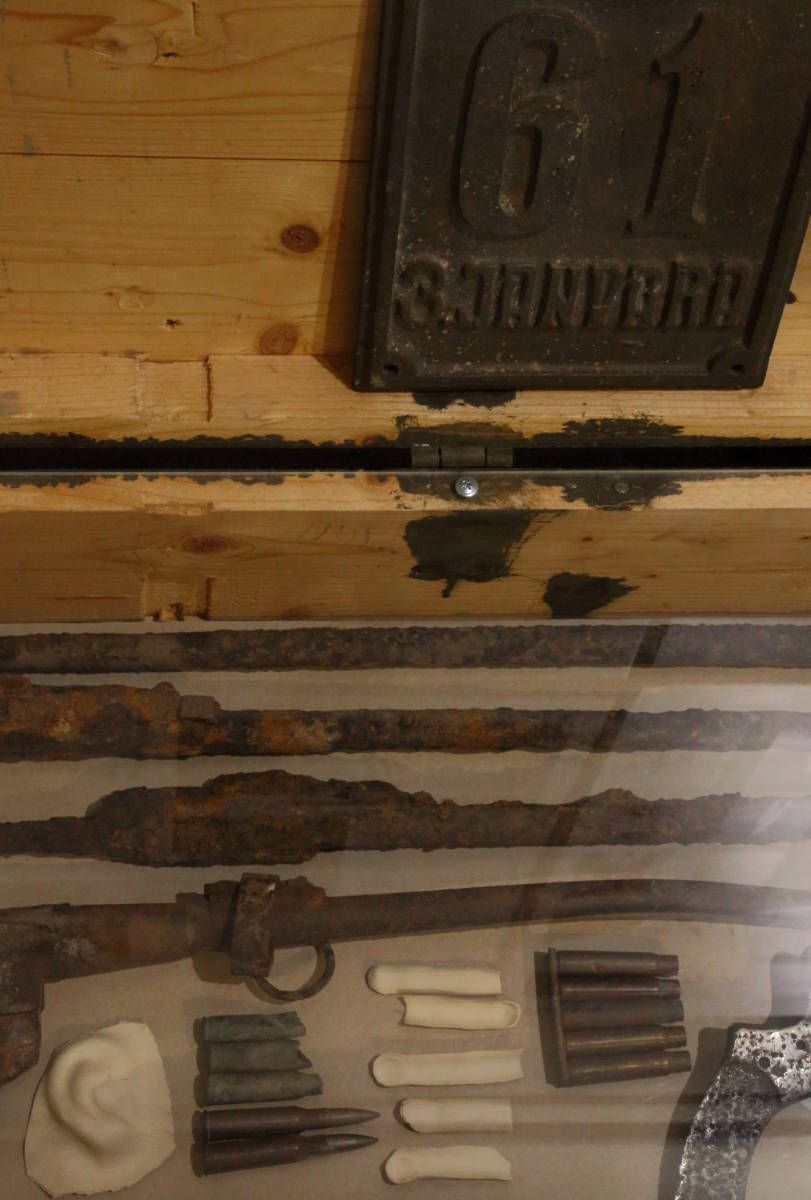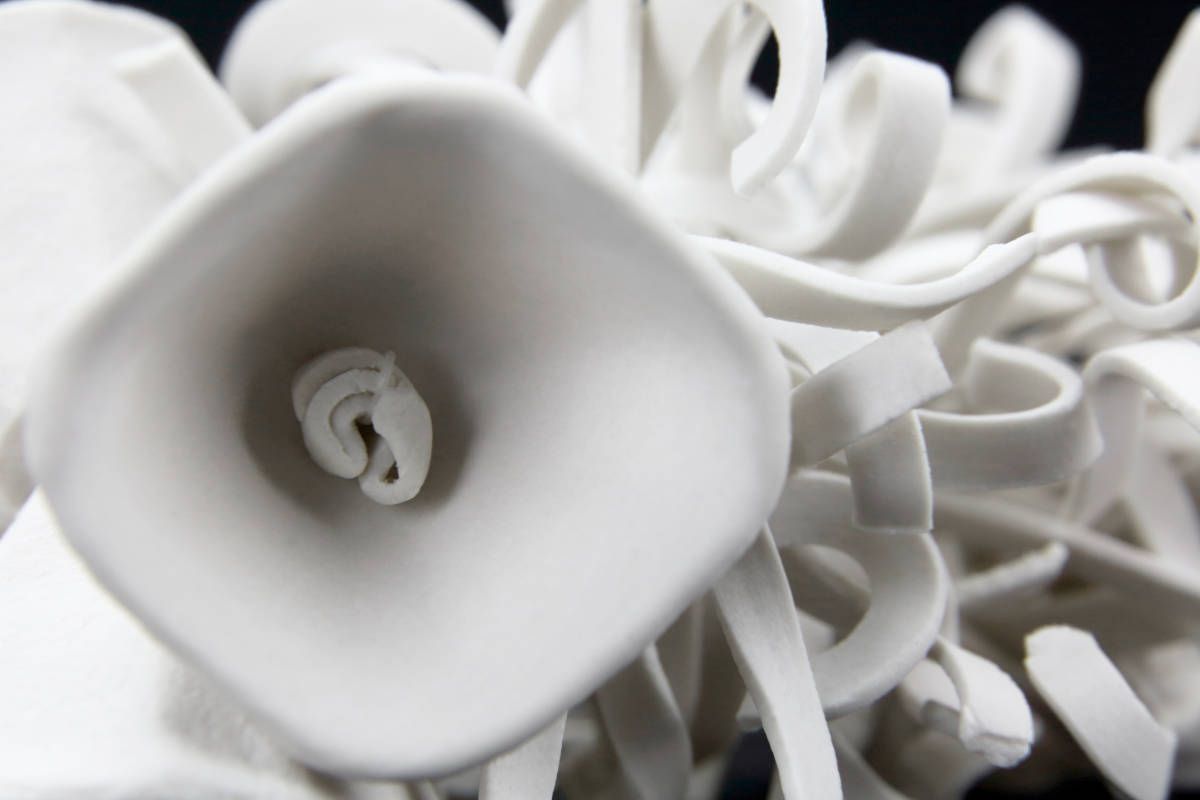Revista Ceramica
Due to the unexpected death of Mr Antonio Vivas, director of Revista Ceramica and the discontinuation of his magazine, the article written by Ana Maria Asan will not be published.

Euphonious Ceramics, by Barbara Bunskoek
(…) Intuitive and experimental, my work stands all these years as a testimony for what I really am, a poet and an explorer. By having followed my vocation I became the artist that I am today and I found my right place in this changing world. (…)
The Sonorous Dimension: The SONORES Project at its 10th Anniversary by Ana Maria Asan
(...) Only an environment favourable to thinking, where the artist’s vision is entirely respected allows people to truly experience art (...)

Glory © Harald Jegodzienski
(…) The effects of war mean broken, ruined and traumatised lives, which are not mentioned in the panoptics provided for tourists. (…)
During the 8th International Ceramic Art Symposium, Ceramic Laboratory 2020, painter and ceramicist Harald Jegodzienski dedicated a certain time to the writing of the journal entitled Glory which is partially published on this site with his kind permission.

SONORES 10 & More, by Ana Maria Asan
(…) I mentioned the journey also because the whole project was conceived as a work in progress, opened to new possibilities, in a perpetual process of questioning myself and the audience.(…)

Profile : ANA MARIA ASAN
(…) Sometimes, I sneak in the Faculty of Architecture next door to follow the Art History course. Several professors impress me by their erudition and generosity. It’s also a privileged time for friendship and mind opening. (…)
Focus: The Body Issue / SONORES, by Ana Maria Asan
(…)For me, art has the capacity to reach directly into our hearts and mind. It prompts us to reflect and it is an antidote to indifference.(…)
Transparences, by Muriel de Crayencour
(...) Pour compléter, l’artiste d’origine roumaine Ana Maria Asan présente ce qu’elle appelle une “tentative d’autoportrait”, sous la forme d’un très gracieux travail sur le verre. De nombreuses pièces, couchées à plat dans de petits sarcophages de bois, sont des langues de verre transparent. Le verre en fusion a été coulé sur du sable mouillé dans lequel l’artiste a marqué des formes en y appliquant un bras, un pieds, des doigts… le verre se déploie dans ce creux, marquée par quelques bulles d’air, quelques grains de sable. On y lit son corps, fragmenté. C’est d’une subtile beauté. (...)